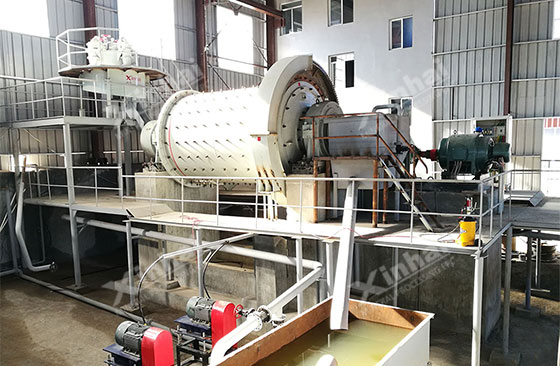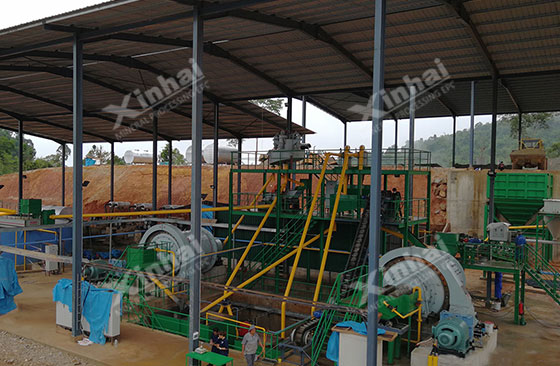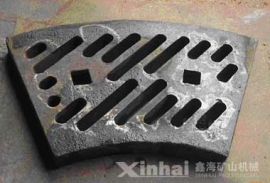Ball mill and autogenous mill are both common grinding equipment in the mineral processing plant. The grinding equipment has large operation cost. The chosen of grinding equipment has large influence on mineral processing flow and construction investment. What are the differences and similarities between ball mill and autogenous mill? In this paragraph, we are going to talk about the differences and similarities between ball mill and autogenous mill, helping you choosing suitable grinding equipment more conveniently.
Use the table of contents below to navigate through the guide:
01The similarities between ball mill and autogenous mill

1. The similarities in structures
The structures of ball mill and autogenous mill are similar though they are different in length-to-width ratio. In the choice of bearing, generally small ball mill and autogenous mill choose rolling bearing, and large ball mill and autogenous mill choose sliding bearing.
In the rotary system, the composition of the two kinds of mill is basically the same, they are composed of feeding, barrel, discharging and other departments, the end cover adopts integral casting. The discharge end of the autogenous mill is similar to the lattice ball mill. The autogenous mill also has a cylindrical screen similar to a ball mill that separates the bulk material from the finely ground ore.

2. The similarities in handling materials
Ball mill and autogenous mill can deal with non - metal, ferrous metal, non - ferrous metal, rare metal, and divided into dry and wet two types, to meet the needs of various materials.
02The differences between ball mill and autogenous mill

1. The differences of structure
Although the structure of autogenous mill and ball mill is similar, there are differences in details. First of all, in the shape of the cylinder, there is a difference between the ball mill and the self-grinding machine in the length-width ratio, the diameter of the autogenous mill cylinder is large, the length is short, which reduces the axial segregation of the material, so that the production capacity of the self-grinding machine and the selectivity of the grinding process are improved, and the probability of collision between the ore is increased.

2. The differences on grinding media
As is known to all, ball mill, is to rely on steel ball to participate in grinding, suitable for grinding materials finer minerals.
But the autogenous mill does not need the steel ball or the steel rod to participate in the mill, only relies on the mineral itself as the medium, realizes the autogenous mill, therefore is suitable for the coarser material to sharpen. The autogenous mill can reduce the consumption of steel and thus reduce the impurity of iron in the material. In addition, the friction between materials collision, also can prevent wear.

3. The differences on grain sizes
Because of the high cost of grinding, ball mill usually used as grinding equipment after fine crushing. The grain size is fine, usually between 10~20mm, while the grain size of product is 0~0.5mm.
The feeding grain size is under 250mm. When the weight is more than 75%, the output is high, the energy consumption is low and the degree of over-crushing is light. In addition, the grinding ratio of the self-grinding machine is large, which can deal with the raw ore from the quarry, and can also deal with the raw material after rough crushing, which can be grinded to a finer particle size.

4. The difference of factory configuration
The ball mill can grind the ore to a finer particle size, but the range of the feed particle size is also higher, and the cost of grinding is higher, so it is usually configured in the fine crushing, as the main grinding equipment, one section grinding commonly used lattice ball mill, the second section grinding commonly used overflow ball mill.
The autogenous mill has a wider limit range of material particle size for feeding equipment, which can deal with coarser mineral particle size, which is equivalent to "crushing + a section of grinding", but at the same time, the discharge particle size of the self-grinding machine is also relatively coarse. In general, the larger diameter of the autogenous mill will play a role, so in small and medium plant use less.
The above is the analysis of similarities and differences between ball mill and autogenous mill. In the selection of grinding equipment, we should consider from various aspects and select appropriate grinding equipment according to different demand scenarios to ensure the matching of grinding equipment and technological process and avoid economic losses.
03Xinhai Grinding Equipment Application
1. Guinea 8000tpd gold project

2. Uganda 720tpd phosphate project

3. Morocco 500tpd silver project

4. Russia 500tpd gold project

5. Malaysia 700tpd gold project

6. Zimbabwe 700tpd gold project



 marketing@ytxinhai.com
marketing@ytxinhai.com  0086 13810327080
0086 13810327080 






































































































 CHAT
CHAT MESSAGE
MESSAGE
















